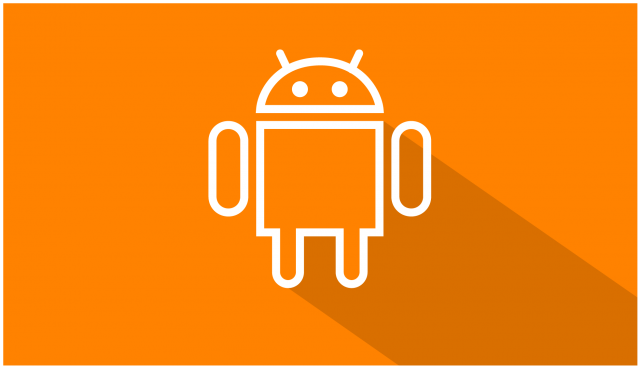Privacy settings
for your
iPhone and iPad
Privacy settings
for your
iPhone and iPad

Privacy tips for your iPhone and iPad
The instructions below help you secure your phone properly.
Why?
The passcode is the first layer of iPhone security. A custom numeric or alphanumeric code allows you to choose a longer and more secure passcode than the default 4-digit PIN.
How?
- Go to Settings
- Select Touch ID & Passcode
- Tap Change Passcode
- Tap Passcode Options
Why?
If your phone is lost or stolen, you can reduce the risk of your data falling into the wrong hands by having all data erased after 10 failed passcode attempts.
How?
- Go to Settings
- Select Touch ID & Passcode
- Toggle Erase Data to ON
Why?
Notifications on the lock screen can be seen by others—if your phone is stolen, left unattended, or just lying on a table. Turn off lock screen notifications for apps that might show confidential information.
How?
- Go to Settings
- Select Notifications
- Select the app you want to change
- Choose the Lock Screen option and turn it off
Why?
Your phone shares location with family and friends. If a phone belonging to you or someone in your circle is stolen, shared location data could fall into the wrong hands.
How?
- Go to Settings
- Select Privacy
- Tap Location Services
- Tap Share My Location and turn it off
Why?
Some apps aggressively collect data, including your location. You can manage location access per app.
How?
- Go to Settings
- Select Privacy
- Tap Location Services
- Tap the app you want to manage
Why?
iPhones come with built-in services that use your location. Review these settings to avoid unnecessary sharing.
How?
- Go to Settings
- Select Privacy
- Tap Location Services
- Scroll down and tap System Services
Why?
Just like with location, you can prevent apps from accessing sensitive info like your contacts, calendar, or hotos.
How?
- Go to Settings
- Select Privacy
- Choose the type of information you want to manage (e.g., Contacts / Calendar / Photos / Health, etc.)
Why?
Take a moment to review all installed apps and remove the ones you no longer use to reduce potential privacy risks.
How?
Option 1:
- Long press an app icon. The icons will jiggle and a small “X” will appear to remove apps.
Option 2:
- Go to Settings
- Select General
- Tap iPhone Storage
- Select Manage Storage
- Tap the app you want to delete
Why?
If you don’t want others to be notified when you read their messages, disable this option.
How?
- Go to Settings
- Select Messages
- Toggle Send Read Receipts to OFF
Why?
Advertisers use tracking to serve you personalized ads. Limiting tracking helps protect your digital profile.
How?
- Go to Settings
- Tap Privacy & Security
- Tap Tracking
- Turn off Allow Apps to Request to Track
Why?
Resetting your advertising ID makes it harder for advertisers to track you over time and across apps.
How?
- Go to Settings
- Tap Privacy & Security
- Scroll down and select Apple Advertising
- Tap Reset Advertising Identifier
Why?
DuckDuckGo is a privacy-focused search engine that doesn’t track you. Switching helps keep your searches private.
How?
- Go to Settings
- Scroll to Safari
- Tap Search Engine
- Select DuckDuckGo

Privacy tips for your iPhone and iPad
Onderstaande instructies helpen je om jouw telefoon goed te beveiligen.
Why?
The passcode is the first layer of iPhone security. A custom numeric or alphanumeric code allows you to choose a longer and more secure passcode than the default 4-digit PIN.
How?
- Go to Settings
- Select Touch ID & Passcode
- Tap Change Passcode
- Tap Passcode Options
Why?
If your phone is lost or stolen, you can reduce the risk of your data falling into the wrong hands by having all data erased after 10 failed passcode attempts.
How?
- Go to Settings
- Select Touch ID & Passcode
- Toggle Erase Data to ON
Why?
Notifications on the lock screen can be seen by others—if your phone is stolen, left unattended, or just lying on a table. Turn off lock screen notifications for apps that might show confidential information.
How?
- Go to Settings
- Select Notifications
- Select the app you want to change
- Choose the Lock Screen option and turn it off
Why?
Your phone shares location with family and friends. If a phone belonging to you or someone in your circle is stolen, shared location data could fall into the wrong hands.
How?
- Go to Settings
- Select Privacy
- Tap Location Services
- Tap Share My Location and turn it off
Why?
Some apps aggressively collect data, including your location. You can manage location access per app.
How?
- Go to Settings
- Select Privacy
- Tap Location Services
- Tap the app you want to manage
Why?
iPhones come with built-in services that use your location. Review these settings to avoid unnecessary sharing.
How?
- Go to Settings
- Select Privacy
- Tap Location Services
- Scroll down and tap System Services
Why?
Just like with location, you can prevent apps from accessing sensitive info like your contacts, calendar, or photos.
How?
- Go to Settings
- Select Privacy
- Choose the type of information you want to manage (e.g., Contacts / Calendar / Photos / Health, etc.)
Why?
Take a moment to review all installed apps and remove the ones you no longer use to reduce potential privacy risks.
How?
Option 1:
- Long press an app icon. The icons will jiggle and a small “X” will appear to remove apps.
Option 2:
- Go to Settings
- Select General
- Tap iPhone Storage
- Select Manage Storage
- Tap the app you want to delete
Why?
If you don’t want others to be notified when you read their messages, disable this option.
How?
- Go to Settings
- Select Messages
- Toggle Send Read Receipts to OFF
Why?
Advertisers use tracking to serve you personalized ads. Limiting tracking helps protect your digital profile.
How?
- Go to Settings
- Tap Privacy & Security
- Tap Tracking
- Turn off Allow Apps to Request to Track
Why?
Resetting your advertising ID makes it harder for advertisers to track you over time and across apps.
How?
- Go to Settings
- Tap Privacy & Security
- Scroll down and select Apple Advertising
- Tap Reset Advertising Identifier
Why?
DuckDuckGo is a privacy-focused search engine that doesn’t track you. Switching helps keep your searches private.
How?
- Go to Settings
- Scroll to Safari
- Tap Search Engine
- Select DuckDuckGo
Enable "Find My iPhone"
- Go to Settings
- Open the first option. It will likely show your name with the text Apple ID, iCloud, iTunes and App Store underneath.
- Then go to iCloud
- You can now activate the Find My iPhone option.
- On another device, go to https://www.icloud.com/find
- Log in with your iCloud username and password. If you go directly to the link mentioned above, you won’t be asked to enter the code that you normally receive on your phone after logging in.
- A green circle will indicate where your phone is. Click on it to see which actions you can perform.
Enable "Find My iPhone"
- Go to Settings
- Open the first option. It will likely show your name with the text Apple ID, iCloud, iTunes and App Store underneath.
- Then go to iCloud
- You can now activate the Find My iPhone option.
- On another device, go to https://www.icloud.com/find
- Log in with your iCloud username and password. If you go directly to the link mentioned above, you won’t be asked to enter the code that you normally receive on your phone after logging in.
- A green circle will indicate where your phone is. Click on it to see which actions you can perform.

Android

